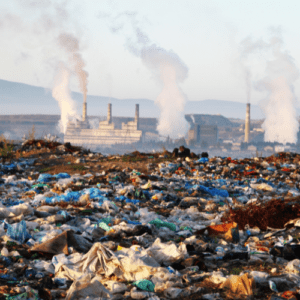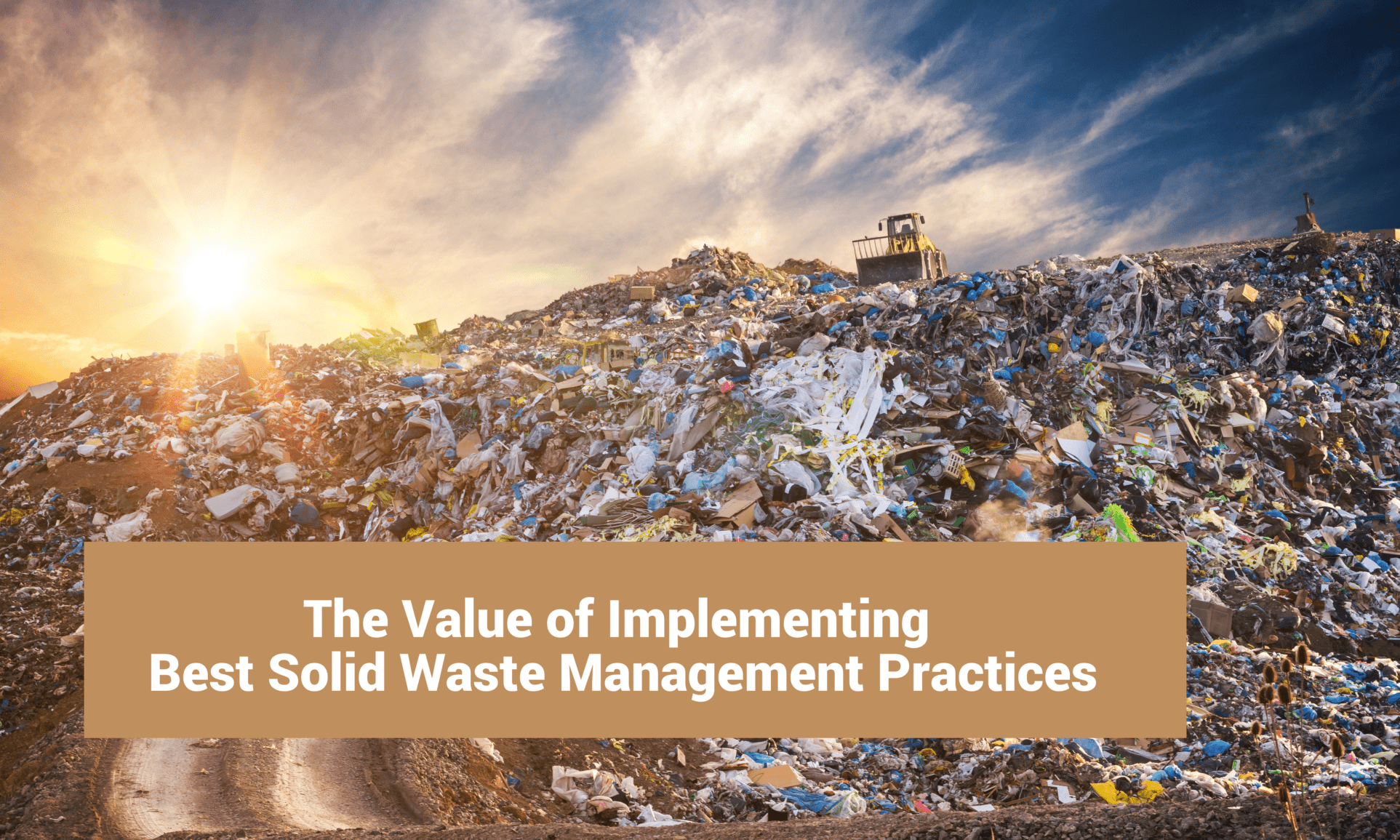Many organizations face environmental, engineering, and management challenges beyond what they can handle. Solid waste management enterprises are facing increasing financial burden; waste recycling facilities are over-burdened to the point of shut down, which leads to the accumulation of more materials; thousands of old landfills have been forced to close and require significant budget allocations to maintain, while the cost of managing existing revenue-generating facilities continue to rise.
The solutions for these challenges are not just technical, but rather involve looking at the entire enterprise and business holistically to seek both technical and management solutions that are strategic and sustainable.
Waste from production and manufacturing is a global problem, and according to the United States Environmental Protection Agency or EPA, the amount of solid waste produced in 2015 was 2 billion metric tons. Millions of people world-wide live in areas where the waste is a monumental safety hazard because local industries, governments, and the businesses that produce the waste do not have an organized system, plan, trained staff, and adequate equipment to manage the solid waste.
Inadequate solid waste management has a detrimental impact on society and impacts the world in three major ways.
- Human health – Solid waste critically diminishes human health when improperly managed. Mismanaged solid waste appeals to animals, insects, rodents, and multiple disease-ridden carriers that often spread infections, viruses, and illnesses to humans. Oceans, groundwater, and drinking water are contaminated and have a severe global effect on all humans. Those living close by the industries that do the most damage are highly affected and need relief.
- Environmental – leachate is water that flows through solid waste and takes the pollutants with it. The toxins and impurities absorbed in the earth’s surface and major waterways contaminated soils, wildlife, and ecosystems. Greenhouse gases released from improper disposal of solid waste pollute the earth and cause global warming
- Socioeconomic – The cost of solid waste mismanagement is excessive due to the environmental damage that wards off developmental and economic chances at growth. Depleted public health systems in cities that lack solid waste solutions can not keep up with the demand because most of the populations are afflicted with respiratory illnesses and skin diseases from over-exposure to waste.
The industries and businesses that produce the majority of solid waste need to know that solutions are attainable. Educating the business on what they need to do is the first step. It is a monumental job to adjust to new habits, change old structures, and see improvement in waste management. Once practices are engaged, the business will see results in the way it performs entirely, including clean, sustainable operations and a noticeable upturn in production.
Businesses that are out of compliance with regulatory requirements have to get help from professional management consultants. A consultation from a Solid Waste Management consultant will teach the company clean ecological solutions, how to – realize value from closed landfills and under-utilized facilities, make their management and operating processes more effective, recycle and transfer waste, improve their environmental impact, reduce the carbon footprint, and clarify their key environmental and management engineering objectives and plans. Taking care to get the proper help will only move the business forward. With patience, focus and persistence, the business could become a leader in sustainability that other businesses will strive to emulate.
Strategies for improving your environmental impact are also documented in the EPA’s guide for solid waste management practices. Businesses that undertake the challenge of improving their solid waste management enterprise can benefit from implementing these practices.
For more details on how to improve your solid waste enterprise productivity, sustainability, customer or stakeholder value, and environmental impact as a landfill, solid waste recycling, or waste-to-energy business or non-profit that needs help with environmental and management engineering, please contact VIKEK environmental engineers for more insight in these key areas.
- Businesses, landfills, solid waste management, and cities will learn the key methods of, preventing and minimizing the impacts of solid waste and improving overall customer and stakeholder value.
- Solid waste management regulatory and permit compliance education to provide resources, guidance, and regulatory compliance support.
- Cities and businesses will understand how to develop and implement decentralized waste management systems.
- Knowing and understanding waste characterization tells the producer what kind of waste they generate and the best way to manage it.
- Proper disposal facility development, operations, and management is a key focus that improves the performance for a safer and more efficient operation.
- Aligning the enterprise, helping them understand their value streams and making them visible, measuring and improving processes.
The best practice for solid waste management is to hire consultants and solid waste management engineers.
In my next Blog, I will clarify what management engineering is as the DNA of VIKEK Environmental Engineers practice and which enables us to deliver unique and increased value to our clients.
[/et_pb_text][/et_pb_column][/et_pb_row][/et_pb_section]



